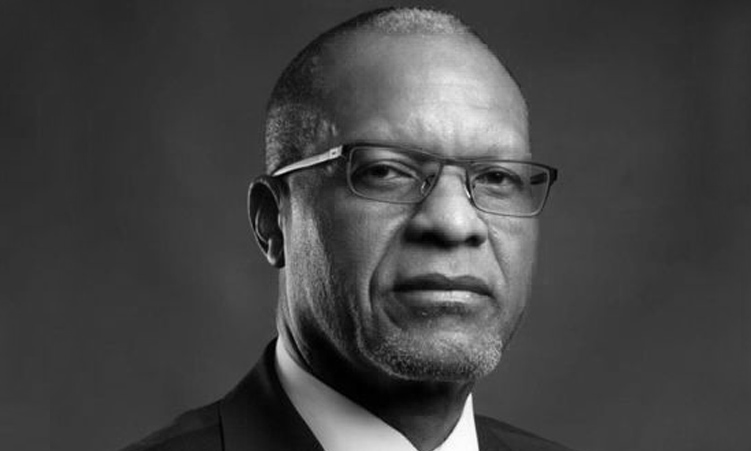The lithium mining company Xinfeng Investments made fraudulent and misleading statements and used plagiarised material when it applied for a mining licence that was granted to it in September last year, the minister of mines and energy, Tom Alweendo, says in an affidavit filed at the Windhoek High Court.
Alweendo is making this claim in an affidavit filed in response to an urgent application that Xinfeng Investments filed two weeks ago in a bid to have Alweendo’s withdrawal of the company’s mining licence stopped.
The Chinese-owned company is claiming that Alweendo’s decision nearly three and a half weeks ago, on 28 April, to revoke its 20-year mining licence, was “unlawful, invalid and unconstitutional”, that it was also irrational and arbitrary, and that it was not based on the powers given to the minister of mines in terms of Namibia’s Minerals (Prospecting and Mining) Act of 1992.
The company is also saying that after Alweendo granted Xinfeng a mining licence for a period of 20 years on 6 September last year and the company confirmed that it accepted the terms of the mining licence, Alweendo’s decision was final and he could not decide to revoke his own decision.
Alweendo informed Xinfeng on 28 April that he was revoking the company’s mining licence, due to “misleading, untrue and incorrect information” in the company’s application for the licence, and directed the company to stop all operations being conducted under the mining licence by the end of May.
The area over which Xinfeng Investments received a mining licence is situated near Okombahe, west of Omaruru.
Xinfeng has faced claims that it is exporting large quantities of lithium ore from Namibia to China, instead of processing the ore in Namibia.
According to the company, it is still in the process of constructing a lithium processing plant in Namibia.
The company has informed the court that it has invested about N$600 million on exploration activities and to develop its mining licence.
According to the company, that amount includes N$500 million spent on acquiring mining equipment and to acquire an exclusive prospecting licence and carry out exploration work.
In response to the company’s urgent application against the minister of mines and energy, the mining commissioner and the environmental commissioner, Alweendo last week filed a counter-application in which he is asking the court to review his decision to grant Xinfeng a mining licence and set the decision aside as a nullity.
In the alternative, Alweendo is asking the court to declare that his decision to grant the company a mining licence “is unlawful, null and void, on the ground that it was obtained through fraudulent misrepresentation, alternatively on the basis of misleading information”.
Alweendo says in an affidavit filed at the court that Xinfeng submitted an application for a mining licence to the Ministry of Mines and Energy in December 2021.
The company says it submitted a technical report required for its application to the ministry in March last year.
According to Alweendo, it has been discovered that the technical report contained false or misleading information, and that parts of it were plagiarised.
He says the initial application lacked some information about the company’s exploration activities, and after Xinfeng was given an opportunity to provide more information to the ministry, a mineral and licensing advisory committee recommended that the mining licence the company applied for should be granted to it.
Alweendo recounts that he informed Xinfeng in writing in October last year that its activities – specifically the export of “huge quantities” of unprocessed ore to China – were inconsistent with the mining programme approved by the ministry, and that he intended to cancel the mining licence the company was granted.
After Xinfeng informed the ministry that it needed to export a lot of ore to its processing plant in China for industrial testing, the committee which had recommended the granting of the mining licence decided to reassess technical and feasibility reports submitted by the company, Alweendo says.
During that reassessment, it was discovered that the company’s licence application contained technical reports that were plagiarised, Alweendo says.
According to the minister, material that was plagiarised includes a report done for a company involved in lithium exploration work south of Karibib, a doctorate degree thesis submitted by a student of the University of the Witwatersrand in South Africa in 2014, and a report on a lithium mining project in Nevada in the United States of America.
The reports he had to take into account before he decided to grant the mining licence to Xinfeng “contained material misrepresentations” and were fraudulent, and this destroyed the legal validity of his decision to grant the licence, Alweendo states.
Xinfeng is disputing that the reports it submitted to the ministry were false, or that the company was aware they were false or intended to mislead the minister.
The company relied in good faith on third-party service providers to produce the reports, and it was the minister’s duty to investigate Xinfeng’s application before he decided to grant it a mining licence, Xinfeng also says in a document filed at the court.
The case is scheduled to be heard by acting judge Ramon Maasdorp tomorrow.
Stay informed with The Namibian – your source for credible journalism. Get in-depth reporting and opinions for
only N$85 a month. Invest in journalism, invest in democracy –
Subscribe Now!






